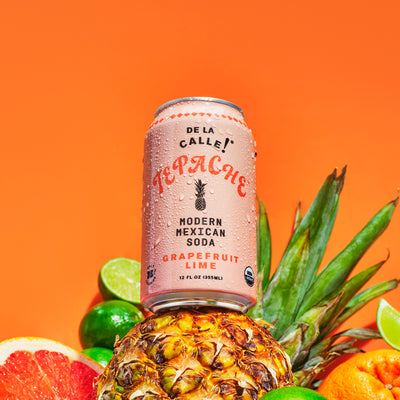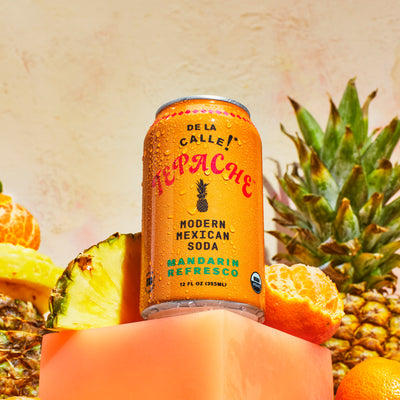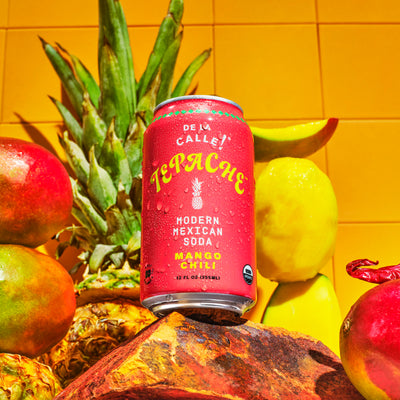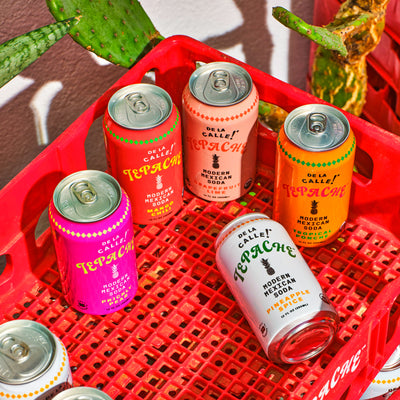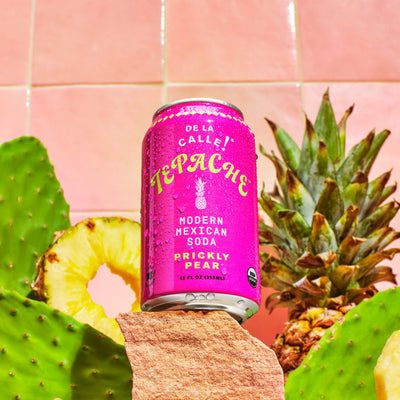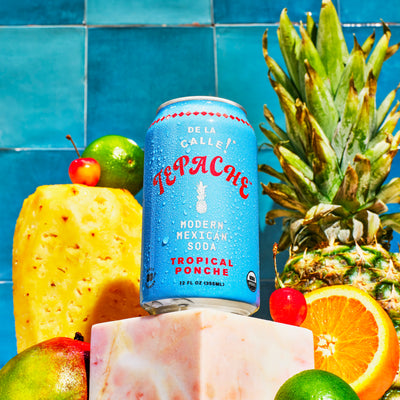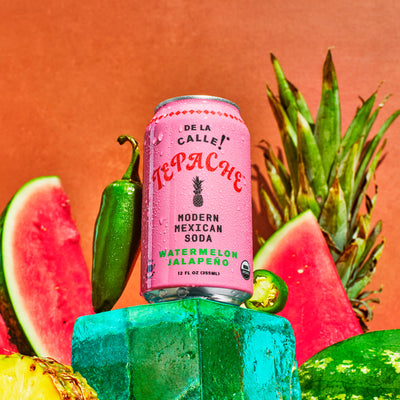Bacillus Coagulans: Benefits and Uses

While the name might look intimidating at first glance, Bacillus coagulans is actually a type of good bacteria that’s classified as a probiotic. Bacillus coagulans can be found naturally in fermented foods such as Tepache and has many health benefits.
In this article, we’ll take a look at the benefits and uses of Bacillus coagulans and breakdown exactly how this probiotic works to promote your health and boost your immune system.
Overview
Bacillus coagulans is a type of probiotic bacteria found naturally in fermented foods and in supplement form. Before we dive into the specifics of this type of probiotic, let’s take a look at what probiotics are in general.
Probiotics are usually live bacteria, but can sometimes be yeast, that live in your gut and help improve your digestive system. For this reason, probiotics are often referred to as “good” bacteria as opposed to the “bad” bacteria that cause illness and infection.
Bacillus coagulans is a type of bacteria that produces lactic acid during fermentation. For this reason, it's often mislabeled as lactobacillus, another common type of probiotic. However, unlike a lot of other probiotics such as lactobacillus, Bacillus coagulans produce spores during its reproductive life cycle which means that it can go dormant in extremely harsh conditions that would kill other probiotics, such as in the highly acidic stomach.
Given its durability, Bacillus coagulans is often used to treat stomach illnesses and discomfort. People often use this type of bacteria to treat stomach illnesses such as Irritable Bowel Syndrome (IBS) and diarrhea as well as to boost their immune system and counteract the effects of “bad” bacteria.
Other Names
Bacillus coagulans goes by several other names such as:
- B. Coagulans
- Bacillus Bacteria
- Bacillus Probiotics
- Spore-Forming Lactobacillus
- Lactobacillus Sporogenes
Although Bacillus coagulans is not technically a lactobacillus, several commercial products label it as such because it is so similar to this type of probiotic.
Health Benefits
Given that there has not been ample research done, the known health benefits of Bacillus coagulans are substantiated mostly by smaller studies. That being said, there are no reported negative side effects of taking Bacillus coagulans when taken as directed.
One of the most compelling studies showed that the uncomfortable symptoms of IBS were greatly reduced by Bacillus coagulans. Some of the symptoms included abdominal pain, diarrhea, and constipation, all of which improved after Bacillus coagulans was incorporated into the diet. Although this study was conducted on people with IBS, Bacillus coagulans can be beneficial for anyone struggling with stomach discomfort.
There’s also significant evidence that proves Bacillus coagulans can greatly improve bowel functioning for people who suffer from constipation and stomach pain. It has also been proved to decrease bloating and vomiting, making it a great choice for people who are looking to improve their digestive system.
Another reported use of Bacillus coagulans is as an anti-inflammatory probiotic that can help anyone suffering with excessive inflammation. There’s also evidence that suggests Bacillus coagulans can aid the immune system with fighting off infection and disease.
Potential Side Effects and Risks
Given that Bacillus coagulans is a dietary supplement, it’s a good idea to check with your doctor before you start incorporating it into your diet because there are a few potential side effects and risks.
One of the main risks when taking Bacillus coagulans is that you’ll have an allergic reaction to the bacteria. Although most people do not have negative reactions, an allergic reaction is a possibility with all supplements which is why it is advisable to talk to your doctor before incorporating it into your diet.
The other main concern when using Bacillus coagulans is that it can negatively interfere with the working of both antibiotics and immunosuppressants. Again, there’s not ample research available to say with certainty how different medications interact with different medications, so it’s best to not use Bacillus coagulans without consulting a healthcare professional while taking antibiotics or immunosuppressants.
However, probiotics such as Bacillus coagulans can also help counteract any harmful side effects of antibiotics, such as gastrointestinal illness and yeast infections, so it’s advisable to ask your doctor how a prescribed medication would interact with probiotics.
Also, it’s important to keep in mind that the U.S. Food and Drug Administration does not regulate the production of dietary supplements, so if you choose to incorporate Bacillus coagulans into your diet in the form of a supplement, make sure you purchase from a reputable and trusted brand. Although they do not regulate the production of supplements, the FDA does give some strains of the probiotic the GRAS status which means they are safe for consumption, so it is a good idea to look for products with this label.
What forms does it come in?
Bacillus coagulans comes in several different forms, which can make choosing the right form difficult! In this section, we’ll break down all the different ways you can incorporate Bacillus coagulans into your diet.
Natural Food Sources
Arguably the best way to incorporate Bacillus coagulans into your diet is through different foods. This particular bacteria is most often found in fermented foods such as yogurt, sauerkraut, and tepache, a delicious, traditional Mexican beverage similar to kombucha but more nutritious.
Fermented foods are incredibly healthy and can aid both your digestive system and immune system. Given that Bacillus coagulans naturally occurs in fermented foods, regularly eating these foods is the best way to introduce your body to this bacteria because it is the least harsh and disruptive way to do so.
Supplements
Bacillus coagulans is also sold in supplement form in both capsules and gelcaps. There are vegan and vegetarian versions available for anyone with these dietary restrictions. For the most part, capsules and gelcaps of Bacillus coagulans contain the bacteria in its spore form which becomes activated in the intestines.
Combined with Other Supplements
It’s very common to find Bacillus coagulans combined with other probiotics such as Lactobacillus acidophilus and Saccharomyces boulardii. If you’re interested in taking Bacillus coagulans in supplement form, it can be more beneficial to take it combined with other probiotics to boost its effectiveness.
How much should I take?
There’s no official standard set for how much Bacillus coagulans you should take because it’s made by such a wide range of companies that all put a different amount of live organisms in each capsule.
The correct dose also depends on your own specific needs, age, and overall health. For this reason, it’s important to read the supplement label closely for the correct dose.
You can also initially introduce Bacillus coagulans to your diet through fermented foods to ensure that your body can tolerate and benefit from this type of probiotic.
Conclusion
Bacillus coagulans is a wonderful probiotic that can be incorporated into your diet to improve your digestive functioning and give your immune system a boost. There are a few potential risks associated with this probiotic, which is why it’s advisable to talk to your doctor before you begin taking Bacillus coagulans regularly, if you choose to take it as a supplement.
The two main ways to consume Bacillus coagulans is through a supplement capsule or through fermented foods that naturally contain the bacteria. Given that finding the proper dosage of Bacillus coagulans can be difficult, it’s a great idea to consider first experimenting with it through fermented foods such as kimchi and our very own tepache!
Sources:
https://www.center4research.org/bacteria-good-bad-ugly/
https://pubmed.ncbi.nlm.nih.gov/28945458/
https://www.health.harvard.edu/staying-healthy/understanding-acute-and-chronic-inflammation


